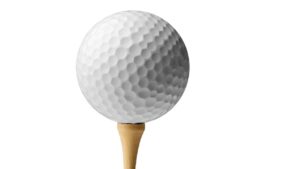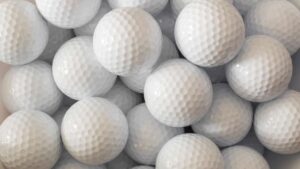Golfers often wonder whether their stash of golf balls has an expiration date. After all, golf balls are designed to withstand powerful swings and countless rounds on the course, but can they last forever? Let’s dive into the topic and explore the lifespan of golf balls.
Table of Contents
ToggleFactors Affecting Golf Ball Lifespan
Several factors influence how long a golf ball remains in optimal condition. The material composition plays a significant role, with newer models using advanced materials that are more durable than traditional ones. Additionally, the way golf balls are stored and how frequently they are used also impact their longevity.
Do Golf Balls Expire?

Golf balls themselves don’t exactly expire like food does. They can last a good ten years if stored properly, which means keeping them at room temperature and away from moisture and extreme temperatures.
Here’s the thing: even if they’re not unusable, older balls might not perform as well as newer ones. Technology in golf balls has improved a lot in recent years, so a ball from way back might not fly as far or have as much spin as a current model.
So, if you’re a casual golfer, a few-year-old ball should be fine. But if you’re serious about your game, you might want to stick with newer balls.
Read also: How Many Golf Balls Are in a Box?
How to tell if a golf ball is still good?

There are a couple of ways to check if a golf ball is still good to use:
- Visible Damage: This is the easiest way to tell. Look for cuts, scuffs, or cracks on the cover. These can affect how the ball flies and spins. Generally, if the marks are smaller than a dime, they shouldn’t be a huge deal.
- Bounce Test: Take your suspect ball and a new ball, and bounce them side by side on a hard surface. See if they bounce the same height. A significant difference might mean the old ball is compressed or worn.
- Performance Test (Optional): If you’re serious, you can hit both the old and new ball at the driving range and see if there’s a noticeable difference in distance or feel.
Ultimately, how particular you are depends on your skill level. Casual golfers might be okay with a few scuffs and minor performance differences. Serious golfers will likely want to stick with balls in pristine condition.
Read also: How Much Do Golf Balls Cost?
Is there a use for old golf balls?
Even if your old golf balls aren’t ideal for hitting a hole-in-one anymore, there are lots of creative ways to put them to good use! Here are some ideas:
Around the House:
- Drainage for potted plants: Place a few golf balls at the bottom of your pot before adding soil. This helps with drainage and prevents root rot.
- Doorstops: Fill a small cloth bag with old golf balls and use it as a doorstop.
- Furniture protectors: Glue felt circles to the bottom of golf balls and use them as furniture coasters to prevent scratches on your floors.
- Drawer organizers: Loose golf balls can help keep utensils or tools from rolling around in drawers.
Crafts and Decorations:
- Paint them! Turn them into ornaments, decorative balls for bowls, or even create little characters.
- Make a wreath or garland: Golf balls can be a unique addition to a seasonal wreath or strung together for a fun garland.
- DIY toys or stress balls: For small, supervised play, decorate golf balls for pretend play or use them as a unique, squeezable stress ball.
Other Uses:
- Pet toys: (with supervision) Dogs can enjoy chasing and fetching golf balls. Just make sure they’re not a choking hazard for your pet.
- Balancing objects: Use golf balls to level furniture or keep wobbly objects stable.
- Juggling: Experienced jugglers can use golf balls for practice (not recommended for beginners!).
Donation or Recycling:
- Donate to charity: Some organizations collect used golf balls for various purposes, like providing practice balls for underprivileged golfers.
- Check for recycling programs: While not everywhere offers golf ball recycling, some facilities might accept them.
So, even if your old golf balls aren’t hitting the fairway anymore, you can find plenty of creative ways to give them a second life!
Signs of Deterioration

Signs of deterioration in golf balls are important to recognize as they can affect the ball’s performance and ultimately your game. Here are some key indicators to look out for:
1. Discoloration
One of the most noticeable signs of deterioration is a change in the color of the golf ball. Exposure to sunlight, moisture, and other environmental factors can cause the outer cover of the ball to fade or become discolored over time.
2. Cracks or Damage
Inspect the surface of the golf ball for any cracks, cuts, or other damage. Even minor imperfections can impact the ball’s aerodynamics and cause it to fly erratically when struck.
3. Loss of Elasticity
The core of the golf ball is designed to provide energy transfer and compression upon impact. As the ball ages, the materials in the core may lose their elasticity, resulting in reduced distance and less responsiveness to the clubface.
4. Dimples Wear
The dimples on the surface of a golf ball are crucial for aerodynamics and lift. Over time, these dimples can wear down, affecting the ball’s ability to maintain stability in flight and hold its line.
5. Floating
In severe cases of deterioration, golf balls may begin to float in water rather than sink. This is a clear indication that the ball’s construction has been compromised, and its performance will likely suffer as a result.
Storage Tips to Prolong Lifespan

Proper storage is crucial for prolonging the lifespan of golf balls and maintaining their performance over time. Here are some key tips to help you store your golf balls effectively:
1. Keep Them in a Cool, Dry Place
Heat and moisture can accelerate the deterioration of golf balls, so it’s important to store them in a cool, dry environment. Avoid storing them in places where they may be exposed to direct sunlight or extreme temperatures, such as the trunk of your car or a hot garage.
2. Use Airtight Containers
To prevent moisture from seeping into your golf balls, consider storing them in airtight containers or resealable bags. This will help maintain the integrity of the balls’ construction and prevent them from becoming waterlogged.
3. Avoid Exposure to Chemicals
Keep your golf balls away from harsh chemicals, such as gasoline, solvents, or cleaning agents, as these can damage the outer cover and affect the performance of the balls. Store them in a separate compartment or container to minimize the risk of exposure.
4. Don’t Overcrowd
Avoid overcrowding your golf balls in storage containers, as this can cause them to become misshapen or damaged. Instead, store them in a single layer or use dividers to keep them separate and prevent them from rubbing against each other.
5. Rotate Your Stock
If you have a large collection of golf balls, consider rotating your stock periodically to ensure that older balls are used first. This will help prevent any one batch of balls from sitting unused for an extended period, which can lead to deterioration.
Effect of Expiration on Performance
The expiration or deterioration of golf balls can have a noticeable impact on their performance. While golf balls may not have a fixed expiration date like perishable items, factors such as age, storage conditions, and frequency of use can affect their performance over time. Here are some ways in which expiration can impact the performance of golf balls:
1. Distance and Accuracy
As golf balls age, their ability to maintain optimal compression and resilience may diminish. This can result in reduced distance off the tee and less accuracy on approach shots. Older golf balls may not fly as far or as straight as newer ones, leading to inconsistencies in your game.
2. Spin Rate
Spin is a crucial factor in controlling the trajectory and stopping power of golf shots. Deterioration of the outer cover or dimples on the surface of the ball can affect its ability to generate spin, resulting in shots that don’t hold the green as well or react predictably on approach shots and chips.
3. Feel and Feedback
Experienced golfers often rely on the feel and feedback they get from the golf ball to gauge the quality of their shots. As golf balls age, their feel may change, becoming harder or less responsive off the clubface. This can make it difficult to judge the quality of your strikes and adjust your game accordingly.
4. Durability
Deterioration can also affect the overall durability of golf balls, making them more prone to damage from errant shots or impacts with hard surfaces. Cracked or damaged balls may not perform as intended and may need to be replaced more frequently to maintain consistent performance.
5. Confidence
Finally, the psychological impact of playing with older or deteriorating golf balls should not be underestimated. Golfers who lack confidence in their equipment may struggle to perform at their best, leading to frustration and a decline in overall enjoyment of the game.
Read also: How to Mark a Golf Ball?
Environmental Impact of Golf Balls
While golf balls may not biodegrade as quickly as organic materials, they eventually break down over time. However, this process can take hundreds of years, posing environmental concerns, especially in areas with high concentrations of golf courses. For environmentally-conscious golfers, exploring alternative options such as biodegradable balls may be worth considering.
Conclusion
In conclusion, while golf balls may not have a definitive expiration date, they can deteriorate over time, affecting their performance. By understanding the factors that influence their lifespan and taking proper storage precautions, golfers can maximize the longevity of their balls and enjoy consistent performance on the course.
FAQs:
- How long do golf balls last? Golf balls can last for years if properly maintained, but their performance may decline over time.
- Can expired golf balls be dangerous? Expired golf balls are not inherently dangerous, but their performance may be compromised, leading to potential safety risks on the course.
- Do all golf balls expire? While golf balls may degrade over time, they don’t have a fixed expiration date like perishable items.
- Is it worth using expired golf balls? It depends on the individual golfer’s preferences and tolerance for performance differences. Some golfers may not notice a significant impact on their game, while others may prefer using newer balls.
- Can I recycle old golf balls? Yes, there are programs available for recycling old golf balls, which can help reduce environmental impact and promote sustainability in the sport.



